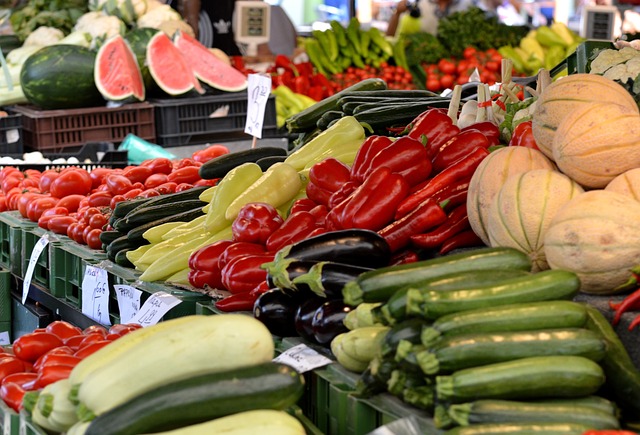Yard waste removal and recycling are essential practices for maintaining ecological balance, enhancing urban aesthetics, and promoting sustainable waste management. This includes composting organic materials like leaves, grass clippings, branches, and kitchen scraps, which not only reduces landfill waste but also produces nutrient-rich compost that benefits soil health and local agriculture. Municipalities are improving yard waste disposal programs to cater to community needs, offering various facilities and services for efficient decomposition and integration of organic matter into the soil. Homeowners are encouraged to follow region-specific guidelines for responsible disposal, which include complying with legal and regulatory standards designed to optimize environmental protection and logistical efficiency. By adopting eco-friendly strategies such as repurposing yard waste into mulch or engaging with local recycling programs, homeowners can significantly contribute to sustainable practices and lessen their environmental footprint. Professional services are also available for those needing efficient and eco-friendly solutions for managing large amounts of yard waste. Innovative technologies like aerated static piles and anaerobic digesters are revolutionizing the composting process, turning yard waste into biogas or compost while reducing emissions. The integration of technology in residential programs, such as curbside collection with optimized routing and user-friendly apps for scheduling and staying informed, is making yard waste removal and recycling more accessible and sustainable, marking a shift towards a circular economy within communities.
Managing yard waste effectively is a crucial aspect of maintaining a healthy garden and protecting the environment. This article delves into the straightforward methods for disposing of yard waste responsibly. We’ll explore the composition and importance of yard waste, providing clarity on the subject. Understanding the legal and regulatory guidelines for yard waste disposal is essential for compliance. Homeowners will discover DIY solutions to manage their yard waste efficiently. For larger or more complex tasks, we’ll guide you on when professional yard waste removal services become a practical choice. Additionally, we’ll highlight local recycling programs and facilities that contribute to sustainable practices. Finally, we’ll look at the innovative technologies advancing yard waste disposal and composting, ensuring your yard remains a green sanctuary while adhering to eco-friendly practices. Yard Waste Removal and Recycling are key components of this guide, offering comprehensive insights for responsible yard maintenance.
- Understanding Yard Waste Composition and Importance
- Legal and Regulatory Guidelines for Yard Waste Disposal
- Effective DIY Solutions for Homeowners to Manage Yard Waste
- Professional Yard Waste Removal Services: When to Call In
- Exploring Local Yard Waste Recycling Programs and Facilities
- Innovative Technologies in Yard Waste Disposal and Composting
Understanding Yard Waste Composition and Importance

Effective yard waste removal and recycling are pivotal for maintaining both ecological balance and urban aesthetics. Yard waste, encompassing organic materials like leaves, grass clippings, branches, and garden debris, can significantly impact soil health and plant growth when composted properly. Comprehending the composition of yard waste is crucial as it often includes woody material, which decomposes at a different rate than leaf litter or kitchen scraps. This diversity in materials necessitates varied disposal methods to ensure efficient decomposition and reintroduction into the soil. Municipalities across the country are increasingly implementing yard waste removal programs tailored to the specific needs of their communities, offering residents access to composting facilities, recycling centers, and collection services. These programs not only facilitate proper disposal but also contribute to the reduction of landfill waste and promote sustainable waste management practices. By diverting organic matter from landfills to compost piles, these initiatives aid in creating nutrient-rich soil amendments that benefit both the environment and local agriculture. Understanding and participating in such programs can lead to a healthier ecosystem, contributing to greener spaces and urban sustainability. Homeowners and landscapers are encouraged to utilize these resources and adopt eco-friendly yard waste management practices to ensure their local environments thrive.
Legal and Regulatory Guidelines for Yard Waste Disposal

Homeowners can manage yard waste responsibly by adhering to local legal and regulatory guidelines, which vary by region. These guidelines are established to ensure that yard waste removal and recycling processes are both environmentally sound and logistically efficient. It’s imperative to familiarize oneself with the specific regulations in your area, as they dictate how, when, and where yard waste can be disposed of. For instance, some jurisdictions may offer curbside pickup services for organic waste, while others may require residents to compost on their own property or transport yard waste to designated collection centers. These services often facilitate the conversion of yard waste into nutrient-rich compost, which can then be used to enrich soils and promote sustainable land management practices. Understanding the legal framework for yard waste disposal ensures compliance with local environmental standards, contributes to the health of ecosystems, and aids in the efficient use of community resources. Homeowners are encouraged to check with their local waste management authority for detailed information on yard waste removal and recycling options available to them.
Effective DIY Solutions for Homeowners to Manage Yard Waste

Homeowners can effectively manage yard waste through a variety of DIY solutions that prioritize both sustainability and convenience. One key approach is to repurpose yard waste as much as possible. For instance, grass clippings and leaves can be transformed into nutrient-rich compost, which enriches garden soil and reduces the need for chemical fertilizers. This process not only lessens the amount of waste going to landfills but also contributes to healthier plants and lawns. Another effective solution is to create a small-scale mulching system. By using a mulcher or chipper, you can break down yard waste like branches and twigs into smaller pieces that can be used as mulch around trees and shrubs, or added to the compost pile. This not only saves space but also provides organic material that suppresses weeds and retains soil moisture. Additionally, some communities offer yard waste recycling programs where residents can set out organic waste for collection, which is then turned into compost. These programs are often free or low-cost and provide a straightforward method for disposal without the need for extensive personal intervention. Regardless of the method chosen, the key to effective yard waste management lies in understanding local waste removal policies, utilizing available community resources, and embracing DIY recycling methods that reduce environmental impact and promote sustainable practices.
Professional Yard Waste Removal Services: When to Call In

When homeowners face the annual challenge of managing yard waste, considering professional yard waste removal services can streamline the process and ensure environmentally friendly disposal. Yard waste removal involves the collection and transportation of organic materials such as grass clippings, leaves, branches, and tree trimmings that result from routine landscaping maintenance or seasonal cleanup efforts. Unlike regular trash, these organic materials are often compostable and can be recycled through specialized yard waste recycling programs. Homeowners may opt for professional services if they generate an excessive amount of yard waste that their personal composting systems cannot handle, or if managing this waste takes up too much time and resources. Additionally, these services ensure proper disposal methods are employed, which not only clears the property effectively but also contributes to sustainable waste management practices by diverting organic material from landfills and promoting soil health through composting facilities.
Recognizing when to call in professional yard waste removal services is crucial for maintaining an orderly landscape and adhering to local regulations. If yard waste accumulation becomes a regular occurrence, especially during the spring and fall seasons when plants are most active and drop foliage, it may be time to consider a service subscription. Furthermore, for large-scale cleanup events like post-storm debris removal or major landscaping projects, professional services are invaluable due to their capacity to handle larger volumes of waste efficiently and responsibly. By utilizing these services, homeowners can not only maintain the aesthetic appeal of their properties but also support local recycling initiatives designed to transform yard waste into nutrient-rich compost for agricultural and horticultural purposes. Yard waste removal and recycling are thus essential components of responsible property maintenance and sustainable living practices.
Exploring Local Yard Waste Recycling Programs and Facilities

When addressing yard waste, it’s crucial to explore local programs tailored for recycling organic materials. Residents can significantly reduce environmental impact by participating in residential yard waste removal and recycling initiatives. These programs are designed to divert yard waste from landfills, transforming it into valuable compost or mulch, which enriches soil health and reduces the need for chemical fertilizers. Homeowners should familiarize themselves with their municipality’s specific yard waste guidelines, as these can vary widely. Often managed by local government environmental departments or sanitation districts, such programs typically accept grass clippings, leaves, branches, and other plant-based debris. By utilizing these services, not only are residents contributing to sustainability efforts but also benefiting from cleaner yards and community spaces. Additionally, these facilities often provide educational resources on best practices for yard waste management, helping to ensure that the materials delivered are appropriate for recycling. Engaging with local yard waste removal and recycling programs is a step towards a greener environment and supports the broader goals of waste reduction and resource conservation.
Innovative Technologies in Yard Waste Disposal and Composting

Innovations in yard waste removal and recycling are transforming how communities manage organic waste. Modern technologies have streamlined the composting process, making it more efficient and environmentally friendly. For instance, aerated static piles (ASPs) optimize the decomposition of yard waste by controlling temperature and oxygen levels to accelerate composting without the need for constant turning or mixing. This method not only reduces labor costs but also minimizes greenhouse gas emissions. Additionally, anaerobic digesters are being used to convert yard waste into biogas, which can be harnessed as a renewable energy source or upgraded to natural gas quality. This dual benefit of waste reduction and energy generation is a significant stride towards sustainable waste management practices.
Furthermore, the integration of technology in residential yard waste disposal has led to the development of curbside collection programs equipped with sensors and GPS tracking. These systems enable efficient routing for collection vehicles, reducing fuel consumption and emissions. Moreover, some municipalities have introduced apps that allow residents to schedule pickups and receive reminders about recycling guidelines, fostering a more informed and proactive community approach to yard waste management. These technological advancements not only facilitate the composting process but also contribute to the overall goal of diverting organic waste from landfills and promoting a circular economy in residential areas.
Effective yard waste management is crucial for maintaining healthy landscapes and protecting the environment. Homeowners can confidently navigate the process through a clear understanding of yard waste composition and significance, complemented by up-to-date legal and regulatory guidelines. For those who prefer a hands-on approach, DIY solutions tailored to manage yard waste efficiently are available. However, when tasks become overwhelming or specialized handling is necessary, utilizing professional yard waste removal services ensures responsible disposal. Additionally, leveraging local yard waste recycling programs and facilities not only supports sustainability initiatives but also contributes to the community’s overall well-being. The integration of innovative technologies in yard waste disposal and composting further streamlines this process, making residential yard waste management a simpler, more eco-friendly endeavor. Homeowners can rest assured that with the right knowledge and resources, yard waste removal and recycling are manageable tasks that contribute positively to both their yards and the environment.
